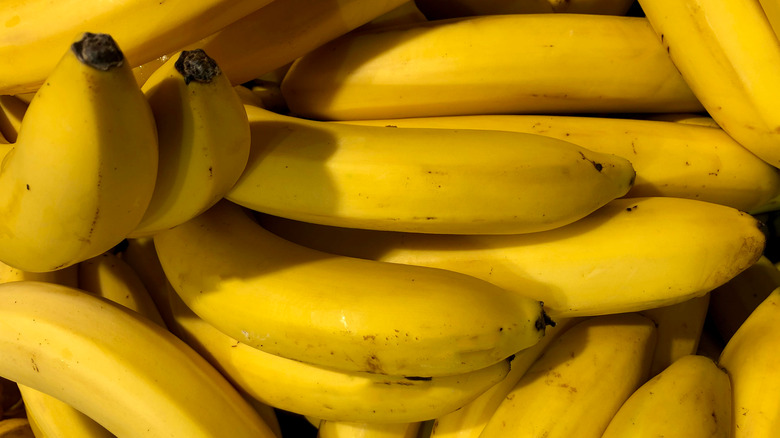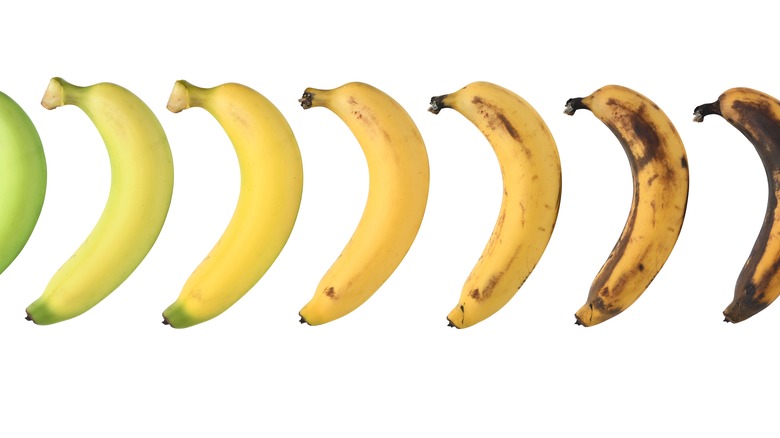How Radioactive Are Bananas And Should You Be Concerned About It?
While Spider-Man tells of a radioactive spider biting an innocent boy and turning him into one of the world's greatest superheroes, we are going to tell you a story of real-life radiation and how it pertains to the potassium-packed banana sitting in your fruit bowl.
Radiation is a common occurrence in nature, and as a result, there is natural radiation in foods. The Environmental Protection Agency (EPA) explains that certain elements such as potassium, carbon, and radium are radioactive to some degree. These elements are "radionuclides" — radioactive nuclides — which are naturally occurring.
We know that everything in the world is made up of elements. Elements contain atoms and when atoms are unstable and break apart they emit radiation, writes McGill. Potassium is one of those elements in which a small percentage of its atoms are radioactive.
Potassium is in a lot of foods, such as leafy green vegetables, beans, nuts, and fruits like cantaloupe and banana. But potassium is also an essential mineral needed by the entire body, according to Harvard T.H. Chan School of Public Health.
Bananas have potassium. Potassium is radioactive. But should we be worried (or looking for superpowers)?
There is a small percentage of radiation in bananas.
The percentage of radiation in potassium is about 0.012%. Rem is the unit used to measure radiation. A banana has 450mg of potassium and out of those milligrams, it has only 0.01 mrem (millirem) of radiation, explains McGill. But a human being already contains 140g of potassium. That makes humans themselves way more radioactive than a banana, according to Science Focus.
To put it in perspective: a lorry of bananas has enough radiation to set off an alarm on a radiation detector, the kind used to search for smuggled nuclear weapons. If we are comparing bananas to bananas, 50 of them would equal the amount of radiation of a dental x-ray and 800 bananas, the amount of radiation given off by a transatlantic flight, continues Science Focus.
One banana does not have enough radiation to harm you when eaten. It increases the body's by only 0.4%, according to Science Focus. And neither does eating one banana a day for the rest of your life, according to McGill, since our bodies regulate and maintain the amount of potassium we need at a constant level. We would excrete extra, preventing build-up.
The good news? You can go on eating your bananas. The bad news? Look for superpowers elsewhere.

